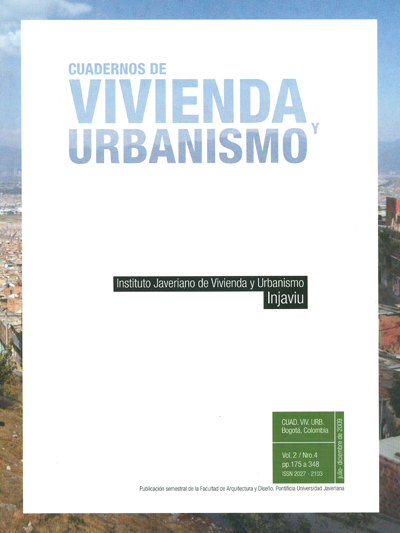Abstract
Nowadays, cities show evidences of degenerative processes and inequalities as a result of the political and economic adjustment to globalisation. The neighbourhood level evidences in the territory the social and physical consequences of this phenomenon. This fact is not only the result of the abandonment of certain areas of the city but, in many cases, as a consequence or as a side effect of a deliberated action. Different levels of government with responsibilities in the city are currently developing public policies and actions to regenerate these areas. Objectives are multiple, among them, the achievement of social cohesion is a priority. This paper aims to analyse and compare the intervention strategies in Catalonia (Llei de Barris) and Chile (programa Quiero mi Barrio). Both policies are based on the idea of integral approach, nevertheless it is important to analyse the existence of mechanisms, in each context, to coordinate and implement social, physical and economic actions (transversal actions), shaping “partnership” and guarantee the inclusion of the main affected actors. We focuse on understand how to translate the design phase of these policies in a real implementation process.This journal is registered under a Creative Commons Attribution 4.0 International Public License. Thus, this work may be reproduced, distributed, and publicly shared in digital format, as long as the names of the authors and Pontificia Universidad Javeriana are acknowledged. Others are allowed to quote, adapt, transform, auto-archive, republish, and create based on this material, for any purpose (even commercial ones), provided the authorship is duly acknowledged, a link to the original work is provided, and it is specified if changes have been made. Pontificia Universidad Javeriana does not hold the rights of published works and the authors are solely responsible for the contents of their works; they keep the moral, intellectual, privacy, and publicity rights.
Approving the intervention of the work (review, copy-editing, translation, layout) and the following outreach, are granted through an use license and not through an assignment of rights. This means the journal and Pontificia Universidad Javeriana cannot be held responsible for any ethical malpractice by the authors. As a consequence of the protection granted by the use license, the journal is not required to publish recantations or modify information already published, unless the errata stems from the editorial management process. Publishing contents in this journal does not generate royalties for contributors.


